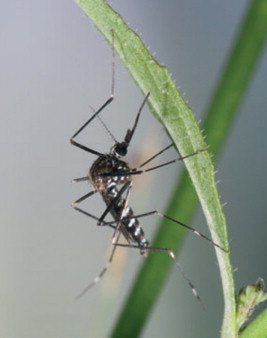Collaborators: Teresa Nazareth, Gonçalo Seixas, José Lourenço, Paulo J. G. Bettencourt
Summary: The recent identification in Lisbon, Portugal, of the invasive mosquito species Aedes albopictus (Ae. albopictus), also known as the Asian tiger mosquito, was recently reported by the Public Health authorities. This raised significant concerns among the local scientific community, even though viruses were not identified within these mosquitoes. Originating from Southeast Asia, the species is a major vector for several arboviruses, including dengue, Zika, chikungunya, and yellow fever, and its increasing presence in areas beyond the classic geographical range underscores concern regarding the potential global expansion of mosquito-borne diseases. For some decades, Aedes species’ distribution was thought to be restricted to equatorial, subequatorial, and tropical zones (corresponding to the sub-Saharan Africa, Southeast Asia, and part of the South and Central America). However, in recent years, these mosquitoes have been able to occupy areas above and below these isotherms eventually also reaching temperate zones (which include Europe and North America, but also South America e.g., Argentina and Chile).
Publication Date: 2023-12-19
Journal: Frontiers in Public Health
DOI: https://doi.org/10.3389/fpubh.2023.1332334

